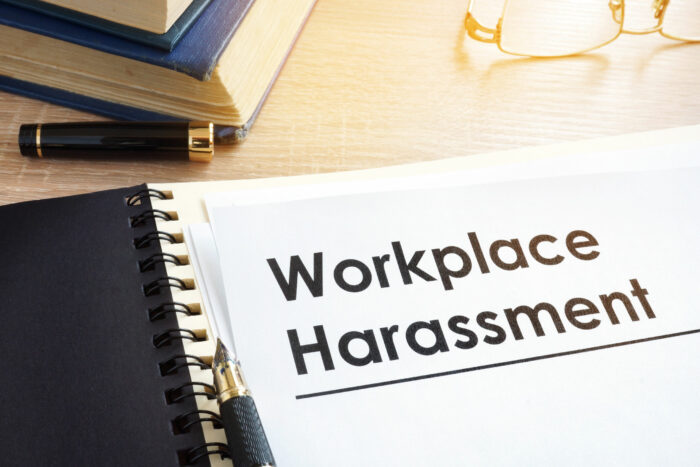Taiwan employees get highest-ever year-end bonus

Despite the economic fallout from the pandemic, employees received the highest-ever average year-end bonus of NT$70,513 (US$2,478) last year.
South Korean workers need to learn how to work with machines

South Korea’s labour minister urged employees to be more adaptable to work in a fast-changing and high-tech environment.
Employers fall short of providing positive digital employee experience

Focusing on providing an environment where employees are supported to digitally thrive influences a more positive workplace culture.
HR Tech Fest Connect 2021 brings organisations into the future of work

At HR Tech Connect 2021, HR visionaries and experts like Anita Lettink and Josh Bersin will address the key priorities facing HR leaders in 2021.
South Korean government urged to enact nationwide sickness programme

Labour activists are calling for more to be done for workers who experience adverse symptoms after receiving their COVID-19 vaccination shots.
Hong Kong’s tourism workers will be offered 2,000 vaccination-related jobs

This is part of Hong Kong’s Job Creation Scheme, which aims to create 30,000 temporary jobs in the public and private sectors over the next two years.
Indonesia union group urges for full payment for Eid allowances

Confederation of Indonesian Workers Unions (KSPI) president Said Iqbal has called for companies to make mandatory full payment for Eid allowances.
Malaysia approves COVID-19 vaccination leave

Human resources minister Datuk Seri M. Saravanan has given the green light allowing employers to give their staff leave for getting vaccinated.
Singapore’s career attachment programmes benefits jobseekers

Among the 9,500 trainees placed across 2,500 firms, four in five are recent graduates, while the remaining are mid-career jobseekers.
South Korea sees increase in non-regular female workers in their 20s

The number of women in their 20s who held non-regular jobs rose the fastest, growing by 5.5 percentage points.
Philippines disbursed US$215.9 million in maternity benefits in 2020

The level of disbursement was almost double the average annual release of US$126.79 million, before the maternity leave law was expanded in 2019.
Cambodia’s public servants risk losing jobs if they refuse vaccinations

While many civil servants and armed forces personnel had come forward for their jabs, there are some who do not want to receive inoculations.
Taiwan urges for laws to grant unpaid leave days for vaccination

The MOL has asked the Central Epidemic Command Center (CECC) to enact new laws allowing employees to take unpaid leave for vaccination.
Malaysia mulls giving a day off for employees to get jab

The Human Resources Ministry and the Ministry of Health are deliberating whether employees should be given an off-day to get their COVID-19 inoculations.
Unemployment continues to drop in Singapore

The Ministry of Manpower reported a fourth consecutive month of decline in the overall unemployment rate in Singapore
Facilitating peer-to-peer collaboration for a better employee journey

CHROs need to provide staff with innovative digital tools for better cross-functional and cross-border peer-to-peer collaboration.
Australian government against minimum wage raise

The government is not raising minimum wages after ending its JobKeeper programme on March 28, citing job creation as one of its priorities.
Japan saw real wages grow in February

Inflation-adjusted real wages, a key measure of households’ purchasing power, rose 0.2% year-on-year in February, according to the labour ministry.
South Korea’s revised labour law allows more flexibile work week

The Ministry of Employment and Labour has increased the period which employers can have more flexibility in implementing the 52-hour work week.
South Korea’s revision of law leaves labourers still vulnerable

The latest revision of the Workplace Harassment Prevention Law (WHPL) fails to protect subcontractors and labourers facing harassment.
Mumbai orders WFH amid COVIF-19 case surge

All non-essential services like malls, beauty salons and places of worship were ordered to shut operations from Monday.
Japan approves law raising retirement age to 70

The Cabinet has approved bills requiring companies to retain their workers until they are 70 years old, effectively raising the retirement age from 65 to 70.
India postpones implementation of new labour codes

The central government has postponed the implementation of four new labour codes originally scheduled to be rolled out on April 1.
Employee engagement key to retain talent in 2021

A new Achievers Workforce Institute report aims to help HR and business leaders connect the dots on engagement and retention to reduce turnover.
Google prioritises in-person collaboration with office reopening

Google is reopening some of its US offices with employees returning to the office on a voluntary basis from April.
Thailand sets up pension fund to support ageing population

The Cabinet has approved the setting up of the National Pension Fund (NPF), a new mandatory retirement savings scheme for formal sector workers.
More workers in Malaysia to return to the workplace from April

The level of office attendance for civil servants is subjected to the Public Service Department, while the private sector is allowed to have 100% of staff back.
New Zealand raises minimum wage from April 1

Beginning April 1, the minimum hourly wage in the country will increase to NZ$20 (US$14) from the current NZ$18.9 (US$13.2).
48% of wage workers in South Korea willing to be vaccinated

Less than half of salaried workers surveyed are willing to be inoculated against the coronavirus, as uncertainty remains over potential side effects.
India considers yoga to boost workplace productivity

The committee set up to study evidence on the matter comprise members from education and yoga institutions, as well as the corporate sector.

